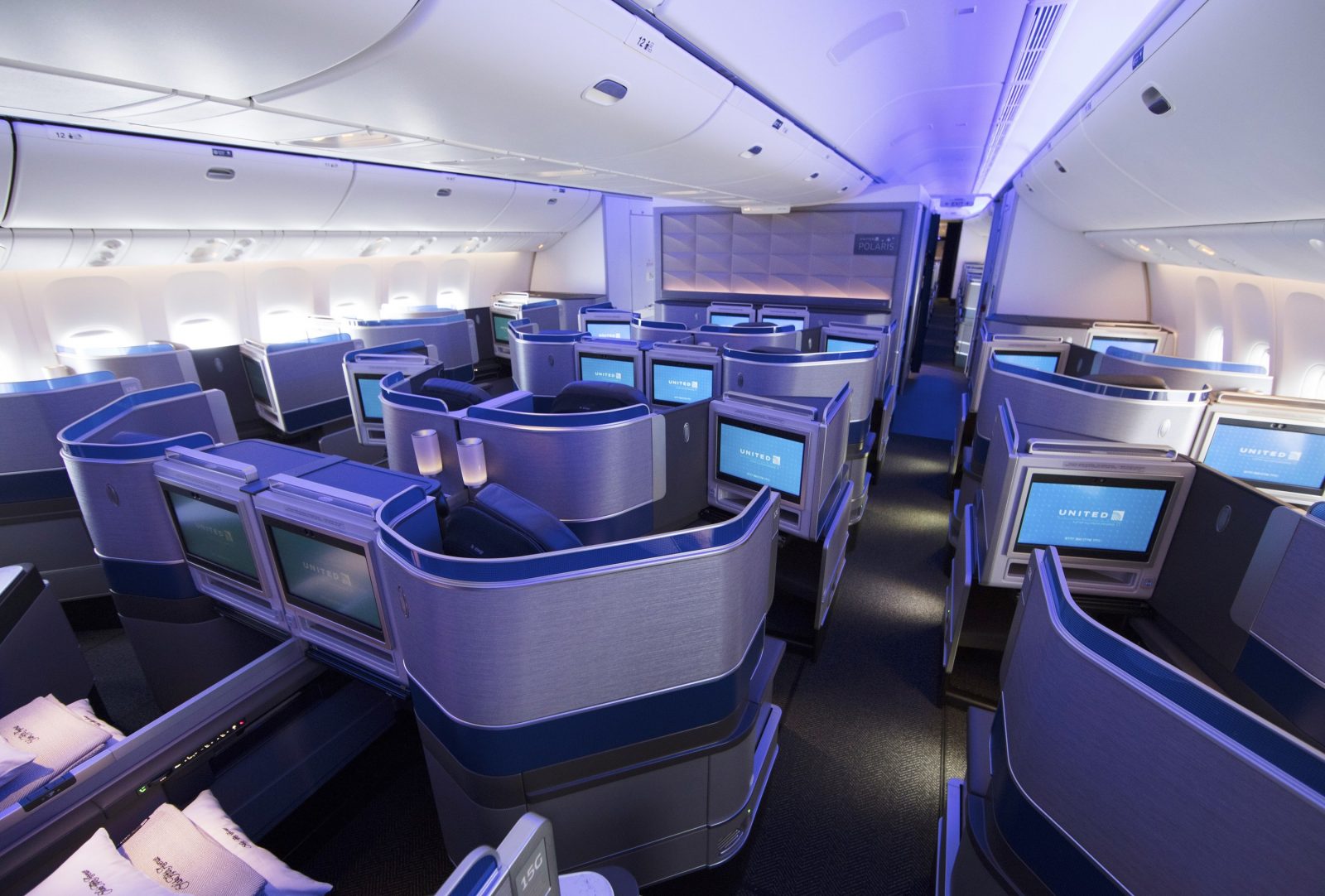
In a leaked memo from United’s head of In-Flight Services, John Slater the airline has announced plans to reduce the number of flight attendants “on certain international widebody flights” from February 2019. Slater told staffers the decision had been made to align United’s onboard crew numbers with major competitors, American Airlines and Delta who already operate flights on their 787, 777 and 767-400 aircraft with one less flight attendant than at United.
The biggest change is likely to be seen in United’s Polaris branded Business Class cabin where the airline is introducing a number of “efficiencies” – Slater says these have been developed to “address feedback from our customers that they value rest above all else”.
United has already “streamlined” the service flow to reduce the overall length of the service and now plans to pre-plate main course entree dishes ahead of flight. At present, one flight attendant works a so-called “mid-galley position” to plate up meals in the galley – once the changes come into effect, this role will become redundant and as a result, United will axe that flight attendant from its crew complement.
“This decision was made after months of effort during which we listened to our customers and analyzed our competitor’s staffing levels,” Slater explained in the leaked memo. “I know this is difficult news,” Slater says, going onto explain: “This is a necessary step for us to stay competitive and continue growing.”
In addition to the loss of the mid-galley Business Class position, United also plans to remove one flight attendant from the Economy cabin on international routes operated by its Boeing 757 aircraft.
Slater has attempted to paint a gloss over the news by claiming flight attendants and the In-Flight Team will be “one of the biggest beneficiaries” of a growth plan which was announced earlier this year – claiming more than 2,000 new flight attendants will be hired in 2019. Though, Slater doesn’t mention whether these new roles represent growth or are simply needed to replace staff turnover.
While this is seemingly bad news for both flight attendants and passengers, it’s hard to ignore the reality of the situation faced by United. Staff costs are one of the biggest expenses after fuel faced by any airline – with competition, especially on long-haul routes, heating up from Gulf and Chinese carriers, as well as low-cost rivals, it has become increasingly difficult for United to justify these ‘extra’ crew members.
United will be going down a well-trodden path of having entree courses pre-plated, typically in a casserole dish ready to serve straight from the oven. The presentation will undoubtedly suffer, although both passengers and crew may be surprised how much quicker the service can be completed with this simple adjustment.
What’s interesting, however, is that United is giving its catering team more responsibility at a time when the relationship between the company and workers has been so fraught. Around 2,700 catering workers at the union have been locked in a bitter dispute over their right to form a union – with allegations that United was running an”aggressive and insulting” anti-union campaign.
In June, United announced plans to end a variable staffing system on its Boeing 777-300 aircraft which allowed the airline to reduce the crew complement of five flight attendants in its Business Class cabin when passengers loads were low. Instead, all 777-300 flights are always crewed with five Business Class flight attendants and one additional crew member was added to the Economy Class crewing level.
Mateusz Maszczynski honed his skills as an international flight attendant at the most prominent airline in the Middle East and has been flying ever since... most recently for a well known European airline. Matt is passionate about the aviation industry and has become an expert in passenger experience and human-centric stories. Always keeping an ear close to the ground, Matt's industry insights, analysis and news coverage is frequently relied upon by some of the biggest names in journalism.







